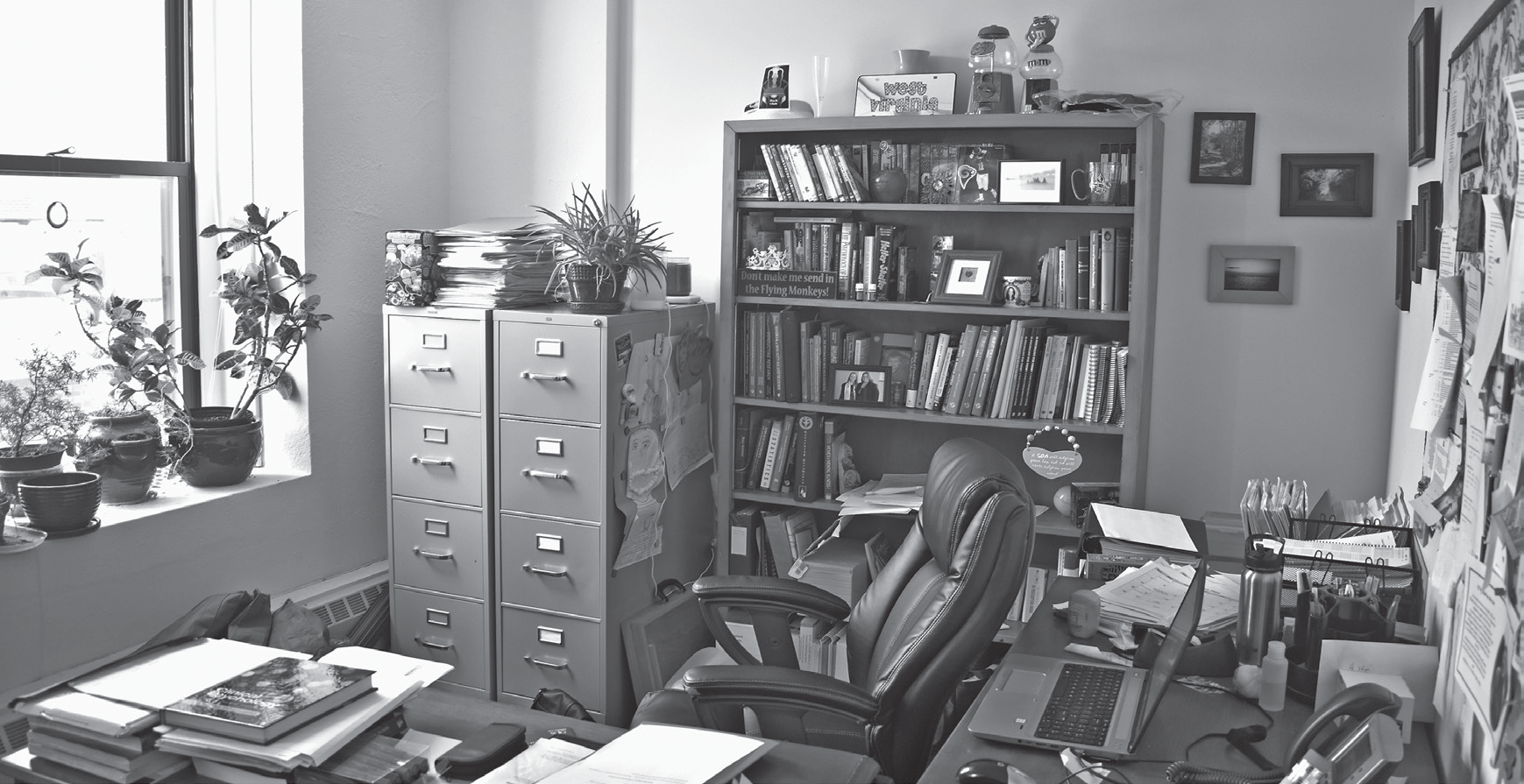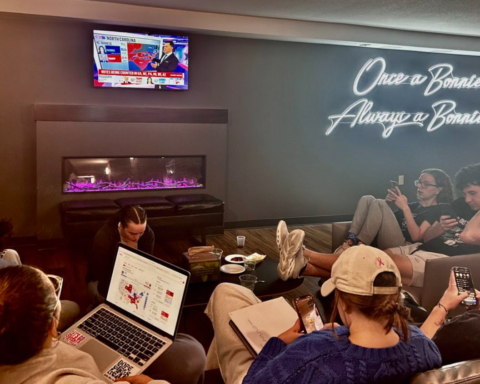By Faith Topolski, Staff Writer
One professor who has plenty of fun things to look at and is approachable and inviting, is Dr. Stephanie Vogel in the Psychology department.
Her office is full of objects that reflect her passion and interest in her field. There are many items that are psychology related, and many more that hold personal meaning. The objects that adorn the office are memories of where Dr. Vogel has been and reminders of significant times in her life and career.
When you walk through Dr. Vogel’s door, the first thing you notice is the window sills that are overflowing with different kinds of plants. Most of the plants are brought down to her office by her ecologist husband and colleague, Kevin Vogel in the Biology department. Dr. Vogel often takes on the responsibility “to try to nurse [the plant] back to health or at least not kill it.”
Then, as you scan around the wall, you can spot a silver and pink crown perched atop a little sign on one of the bookshelves that says “Don’t make me send in the flying monkeys.” The crown was a sort of gag gift given to Dr. Vogel when she became department chair, or “queen.” She liked it so much that she has kept it in her office ever since.
Sharing the shelf with the crown is a small, but very unique collection of books. The growing library is made up of old psychology texts, including books by some of the greats, like B.F. Skinner and Sigmund Freud. Dr. Vogel looks for these classics whenever she is in used bookstores. Every chance she gets, she picks up one of these gems to add to her collection.
Also on the bookshelf, half hidden is a plastic head cut in two with a model of the brain inside. The model came from Dr. Vogel’s uncle, who “as part of his business, empties out estates of individuals who have died.” He found it among the possessions of one estate and kept it for her “knowing how much I love the brain.” Dr. Vogel admitted that this particular item “is probably the creepiest object I have in here.”
In the corner next to the bookshelves is a collection of framed photos she has taken from a variety of Dr. Vogel’s favorite places. There are pictures from her home state, which is also where her alma mater, West Virginia University, is located. One is a picture of the beautiful scenery West Virginia offers, and the other is of the building where the psychology department was, which is where Dr. Vogel said she spent a lot of her time. Another picture is of the bell tower on the campus of Louisiana State University, where Dr. Vogel went for her master’s and doctoral degrees. The pictures serve as a way to keep calm during the day to remember the happy places she has been with her family during their travels.
On the bulletin board over Dr. Vogel’s desk, there is a colorful postcard, which is a piece of art from a St. Bonaventure guest who had autism. He created art and he and his family even donated a piece of his to the Regina A. Quick Center for the Arts. The postcard serves as a reminder that “even when you can’t speak, you can still communicate.” Dr. Vogel feels it was important for people to see that, even when a person cannot speak, there are still ways for them to communicate.
Finally, maybe one of the most noticeable pieces in Dr. Vogel’s office is right on the edge of her desk and cannot be missed. It is a small ceramic jar with a big cork and a label that reads “Ashes of Problem Students.” Dr. Vogel bought it after a few months of being at St. Bonaventure. She figured it would “put belligerent students back on their heels a bit,” but ultimately it is there as a little joke.
The rest of the space in Dr. Vogel’s office is decorated with gifts from her husband and son. Her office is a testament to her commitment to her profession and the people close to her, which makes her office a pleasant place to be.






